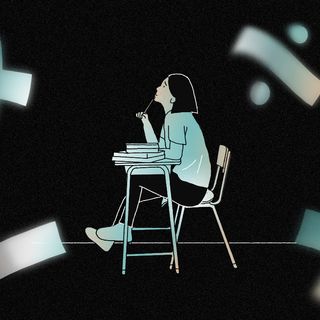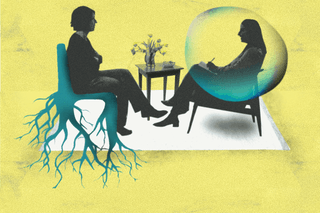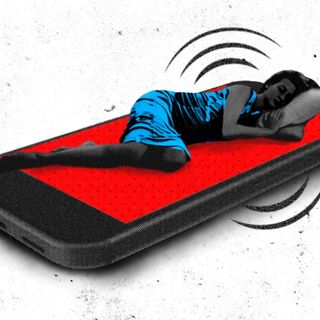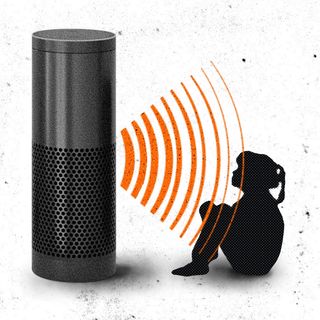
Is Therapy in India Inherently Casteist?
“One cannot work on the mental health of a person whose lived experience includes intergenerational trauma without understanding what caste-based discrimination and oppression looks like.”

When Saranya mentioned in therapy that she felt alienated and oppressed due to her caste, her therapist denied that caste exists at all. “She reacted defensively and, as a privileged caste person, she did not acknowledge that caste privilege can be a thing.”
While developed countries have moved to trauma-informed medical practices, the Indian therapy room continues to remain largely “apolitical.” Affirmative practice aimed at individuals from socially marginalized groups is conspicuously absent. Especially since Indian society is graded in caste inequality, therapists in the country need to acknowledge trauma passed on through generations, normalized through societal discrimination, marginalization, and bias in every sphere of life.
Saranya, for example, was left feeling like caste was a taboo subject within therapy because of her experience. Although she then looked for caste-affirmative therapy, she failed to find it. “I have not seen it being offered and, honestly, I am not too optimistic about the situation,” she says.
“Being caste-affirmative, queer-affirmative, and feminist are a critical part of being a therapist,” says Anvita Sethi, a psychologist. Although an increasing number of therapists and mental health service providers declare their practice to be gender-affirmative, many seem to be silent on caste.
“I already see so many therapists calling themselves queer-affirmative, so why not for caste? I know very few mental health organizations that have put their anti-caste policy on their websites.”
This silence, however, can aggravate subconscious bias. Lakshmi Sreenivasan, a Bahujan psychologist, explains the limitations of current psychology practices: “A lot of psychologists are trained in the Western concept of mental health, which makes them empathetic and non-judgemental, but for the lack of a better word, there is a ‘blindness’ to the reality here, and they end up not addressing the entire humanity of their Dalit and Bahujan clients.”
Divya Kandukuri, the co-founder of The Blue Dawn, a community support group facilitating accessible mental healthcare services to Bahujan individuals, thinks that therapy and access to information is still limited to metropolitan cities. “Access also means affordability and, importantly, the therapist’s knowledge of social causes of trauma,” she says. DBA individuals often face psychological stress due to conditions of their birth and lack of opportunities in education, healthcare, and employment. The resulting trauma on individuals from disadvantaged castes and tribes, is long-lasting and intergenerational.
Related on The Swaddle:
Casteism Still Thrives in Elite Schools in India. What Would Anti‑Caste Education Look Like?
Counselors whose politics are not anti-caste are not only unhelpful to individual students but are actively detrimental to their well-being. Take, for instance, the public post by the head counselor at the Indian Institute of Technology (IIT) Bombay advocating for an end to caste-based reservations, and thereby affirmative action, in education and jobs. “Even if these students get admission in prime institution they are not able to cope up because their base is weak,” she wrote.
Caste bias not only plays out through violent casteist practices but also via therapists’ subconscious biases in therapy rooms that should ideally be safe spaces for all. “People have shared horrid accounts of MHPs (mental health professionals) going so far as completely denying the role of caste as a contributor to mental distress. This has often led to triggering conversations within what ought to be a safe space, such as a therapist’s office, and has ultimately put people off the idea of accessing therapy altogether,” wrote Dr. Kiran Valake, who has worked with The Blue Dawn.
Dr. Ankush, a Dalit medical intern in Mumbai, says that she has always struggled with the subtle caste bias of privileged-caste people. “There is always a constant attack on reservations. So, as a medical student, I felt a certain kind of guilt and not knowing what to do,” she says. Although the first therapist she approached helped her deal with various issues, she got a WhatsApp forward from her one day arguing against reservations. “I froze,” says Dr. Ankush. Incidents like this make the therapist’s caste location critical.
Soon after, Dr. Ankush found a different, Dalit therapist. “There was an instant bonding,” she recalls. “Just knowing that my new therapist is from the same community made me feel at home. It’s much easier to explain the experiences with her.”
Meena Sawariya, a Dalit therapist and doctoral scholar, argues that a non-Dalit therapist can potentially turn a Dalit individual away from therapy. The cultural differences can give rise to cultural anxiety, a feeling of disconnect, or a fear of being judged and misunderstood, which can all lead to new trauma. On the other hand, Sawariya argues that if the therapist is also a Dalit individual, there are much better chances of the therapist relating to the client’s lived experiences, leading to mutual healing.
“The onus of creating a safe space for a client lies on the therapist. One should not have to go by trial and error to find a safe therapy space that is anti-caste,” says Paras, co-founder of The Alternative Story, an organization that provides caste-aware and intersectional therapy.
Privileged-caste practitioners must educate themselves on how intergenerational trauma propagates and persists. People should be able to easily find out whether a particular therapist is anti-caste and has previous experience working with intergenerational trauma. The absence of this information amounts to the erasure of caste from mental health discourse and the consequent propagation of caste dynamics via subtle, subconscious biases.
“Intergenerational trauma gives rise to problems that do not get addressed in most therapy practices, as multiple identities of people, sometimes their hidden identities, remain unaddressed.”
Aryan Somaiya, a co-founder of Guftagu Therapy, agrees about the need for mental healthcare professionals to be mindful of people’s social reality. “It can help understand why some ideas may be deeply held about the self, what are the systemic barriers that a person has, where there is a lot of stagnation and hopelessness that will need to be navigated, as well as what are the defenses that are being used and why.”
***
Aiman, an independent therapist and educator, feels that the dissonance between who people are and who society expects them to be is at the root of mental health concerns for many. However, “the DSM-obsessed worldview is trying to find out what is wrong with the individual instead of acknowledging that the world is irreparably broken.” They believe biological essentialism results in “social issues, like racism, casteism, gender dysphoria being labeled ‘risk factors’ that make certain genes ‘act up.’” Although human beings and their mental health are shaped by the environment they inhabit, “the medical model pathologizes” them.
Divya also notes that casteism is just one part of the caste system, which manifests in many ways, for example, via hegemony and representation. “If therapists don’t recognize these, the situation will not change. We all are part of the system, which I think a small fraction of therapists understand.”
“Psychologists look at clinical factors and point towards them,” says Geeta*, a Bahujan psychologist. However, psychological issues are systemic. “So, counseling should happen from a systemic lens.”
“I always knew that I did not have the means to stay as well nourished as one needs to be when they are under medication,” says Aatika Singh, an Ambedkarite student from the School of Arts and Aesthetics at Jawaharlal Nehru University (JNU).
“The scientific establishment hasn’t yet put its weight behind an alternative indigenous approach to de-caste mental health. This needs to begin urgently, as caste remains one of the worst compounders of social defeat and depression, anxiety, BPD, PTSD, suicide, and a range of other chronic illnesses,” argue Aatika Singh and Shubhkaramdeep Singh.
Related on The Swaddle:
What Happens When Therapists Bring Their Own Gender Bias Into Client Care
Caste-aware, caste-affirmative mental healthcare requires therapists to commit to social justice. In turn, it requires them to be cognisant of inherent social biases that may affect their practices. Aiman, who does not belong to a disadvantaged caste, says that they have had to make a conscious choice to unlearn their social biases and act against them.
Social justice is a political project. “Mental healthcare is political – it is an extension of healthcare,” says Lakshmi. Aiman thinks the current trends in therapeutic practices amount to gaslighting because psychologists do not acknowledge clients’ various identities and their intersections. “So, clients have to explain their trauma, which is doubly traumatic,” they say.
Often, psychologists label the problems and situations clients find themselves in, says Absy Sam, a trauma-informed therapist who uses a community approach to cater to marginalized groups in India. Psychological terms like “depression” and “anxiety,” although a part of the psychologist’s understanding of the client’s problems, might be counterproductive. Or worse, for DBA clients, they may become a source of further trauma, stigmatizing everyday struggles due to social locations with something that’s “wrong” with individuals.
“It’s important for the therapist to hold space for their clients in a way that lets them explore their concerns without pathologizing their experience,” explains Absy.
“Acknowledging the trauma and its cause is important because the therapist and client are venturing into social injustice together.”
A power dynamic exists in the therapy room if the therapist is of a privileged caste and the client is a DBA individual. This reality cannot be cloaked in the language of DSM-5 manuals rooted in Western social conditions. It is antithetical to the idea of affirmative action, which begins by acknowledging historical wrongs done to marginalized communities.
“The starting point is to acknowledge that it’s not a binary, that the personal is political,” says Aatika. “Privileged-caste therapists need to acknowledge that the kind of world we live in is partially because of them,” she says, pointing to overt and covert social exclusions practiced by privileged-caste members. Privileged-caste therapists should question the relative privileges they enjoy because they belong to privileged communities and the historical practices these communities still follow.
***
Sadaf Vidha, the co-founder of Guftagu Therapy, warns of the possible adverse effects of simply naming caste as the cause of oppression – both for the therapist and the client. “In the therapist’s case, the caste-aware position can help them pat their back and feel like they are doing good work, whereas they might just be naming caste abuse. So the work of therapy which has to happen psychologically with the effects of caste discrimination gets left out as we feel our awareness and naming is enough.”
The clients, Sadaf explains, may falsely come to believe that they are “supposed to hate everything ‘upper caste’”, instead of prioritizing public and private initiatives that encourage collective affirmative action. She argues that it may lead them to accept their caste location “instead of seeing themselves as a complex, nuanced individual who can exist outside the upper caste gaze.” Moreover, she points out that caste is not the only form of oppression in society, and every individual – including DBA individuals – has the potential to harm others around them. “They do not automatically become innocent just due to their caste location.” Citing the example of patriarchy within marginalized communities, she argues for a nuanced, intersectional feminist approach to politics in the therapy room.
Related on The Swaddle:
Respectfully Disagree: What Went Wrong With Wokeness?
Social and cultural modes of oppression can thus only be countered via therapy if it takes an intersectional feminist approach. This gap can be filled if courses in psychology target caste, class, and gender struggles intersectionally.
Currently, although psychology courses in the country impart knowledge about gender and sexual identities to aspiring therapists, there is no conversation about caste-affirmative therapy, notes Geeta. Consequently, “most therapists are individualistic in their approach,” she says.
Further, “The number of Dalit, Bahujan, or Adivasi professors in psychology programs is abysmally low, and as always, low representation leads to invisibilisation of the experiences of an entire community,” adds Paras.
Recent research into the courses at the undergraduate level at Delhi University suggests that the absence of caste in the curriculum helps perpetuate casteism in practice.
Betilda Jhansi, a counseling psychology student, points out that putting out one’s politics depends on how much the therapist is willing to face the repercussions of doing so. Mainly, being openly anti-caste may result in them losing potential privileged-caste clients. “Since most members of marginalized communities cannot afford or access mental healthcare, it is accessed mostly by privileged-caste clients,” she says.
Sawariya also underlines the lack of studies in psychology from a caste lens. Psychological tests for caste prejudices are negligible, she wrote, limiting the scope of psychology in addressing caste. To overcome these shortcomings, she advocates for psychological training programs, which can sensitize therapists to the socio-political dynamics of caste, how it affects the mental health and well-being of individuals, and include the lived experiences of DBA scholars.
Paras believes that sensitization of privileged-caste practitioners is only the first step. “I strongly believe that no amount of anti-caste discourse being read and consumed by a Savarna mental health professional will be a replacement for a trained and qualified DBA mental health professional. The actual change will come when we focus on increasing the number of DBA students in post-graduate psychology programs and incentivize this profession for them.”
Aiman thinks that reservations need to be provided starting from the level of Bachelor’s education. “All other medical or healthcare fields have affirmative action. So why not psychology?” they ask.
“Unless there is annihilation of caste, there is no meaning to individualized therapy,” says Divya, going a step further to question the importance of therapy within an unequal social order.
Aatika agrees: “I think we don’t need therapy for most things, but we need more basic things like better healthcare, more resources, etc. The conversation of liberal civil rights is still very neoliberal and individualistic: do this, do that, things will get better. However, I need more basic things to get there.”
*Name changed to protect anonymity.
Debdutta Paul holds a PhD in Physics from TIFR, Mumbai. He is a science writer at JoVE and a freelance journalist.
Related


Why Snoozing the Alarm in the Morning Is Injurious to Health
